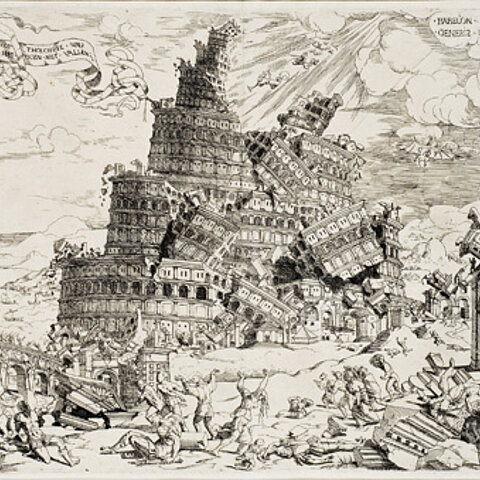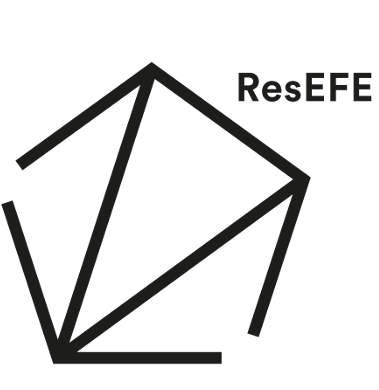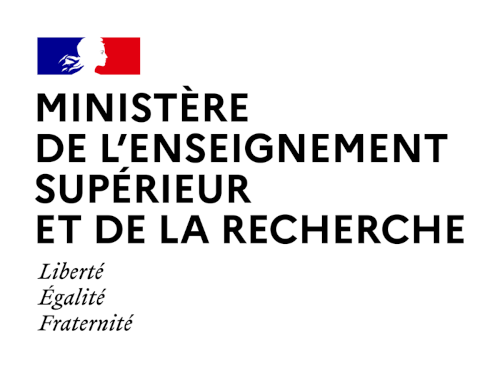Coord. : Alain HUGON (Université de Caen, CRHQ), Alexandra MERLE (Université de Caen, ERLIS)
Org. : École des hautes études hispaniques et ibériques (Casa de Velázquez, Madrid), Université de Caen
Col. : Maison de la Recherche en Sciences Humaines (MRSH, Caen)
Celebration place:
Casa de Velázquez
C/ de Paul Guinard 3
28040 Madrid
Attention: inscription necessary for participation
Uprisings, revolts and revolutions in the Spanish Habsburg monarchy

Podcasts
De la revuelta de los Barretines (1687-1689) a la resistencia catalana de 1713-1714 contra Felipe V
Joaquim ALBAREDA

Presentation
The violent manifestations of political protest which arose during the Spanish Habsburg monarchy have been a centre of interest for many researchers in recent years; they are based on new methodological approaches which show the importance of proclamations, pamphlets and «written complaints» in the preparation, development as well as in the repression of the uprisings. Following these new research positions, this workshop intends to carry out a more systematic consideration of a large range of cultural productions which go with the uprisings and revolts, sometimes called “revolutions”. This case study will specially focus on the movements which challenged the sovereignty of the monarch, for example the movement of the Comunidades or the varying activities of the secessions in Catalonia, in Portugal, in Flanders, and in several Italian possessions (Naples and Messina for instance).
We would first try to evaluate the precise role and impact of the representations and the different sorts of sources of legitimacy from which those revolts arose: we are interested in proclamations, memorials and legal briefs sent to the authorities, as well as in the iconography and other types of manifestations (for instance theatrical) which are usually connected with the traditional representations of Royalty, in order to study its role in the preparation, outbreak or justification of the revolts. In doing this, we will try to study the different means of expression of protest and the mechanisms of its production, considering that the status of those means of expression have direct consequences for the sphere of influence and the geographical and social spreading of the vindications. This research, linked to the question of control of public opinion, indicate possible variations in the different possessions of the monarchy.
Furthermore, the study of the political models and the theoretical basis for the revolts constitute one of the main focuses of our research. It is necessary to identify genealogies and intellectual filiations given as justifying elements and whose use is not limited to the most elaborated texts. These filiations could either be real or rhetorical. In most cases the revolt is based on the idea of the preservation of the «common good» and on the abuse of authority; it reminds us of theoretical concepts promoted first in Antiquity in doctrinal literature and then more widely. But beyond this usual reference, we will try to examine the existence and the circulation of precise political models which have their origin in Antiquity or are the result of the mythification of a particular past in which «freedom» was respected (for example in the case of the Aragonese “fueros”). We will also try to point out the presence of a «republican» model and study the dissemination and the circulation of this model in the case of the Spanish monarchy.
The analysis of the theoretical references and models will lead to explore the links between the revolutionary movements during the Spanish monarchy and other European contemporary demonstrations (the treaties during the French wars of religion, the Fronde conflict in France, the revolt against the King of England, etc).
This seminar will consist of a cycle of four sessions or workshops which will be held in Madrid, at the Casa de Velázquez at the following dates: 8 February, 15 March, 19 April and 31 May, 2013. French, Spanish and Italian will be the conference languages.
Programme
FRIDAY THE 8th FEBRUARY, 2013
THE DIVERSE NATURE OF SOURCES AND METHODOLOGICAL APPROACHES FOR THE STUDY OF THE REVOLTS
This first session will be devoted to the identification and evaluation of the documental sources necessary to study the uprising, revolts and revolutions (among them, the judicial sources, the textual and iconographic documents made by rebelling people at different moments of their actions in order to denounce the abuse of sovereign authority and to justify their acts or to increase their supporters’ fervour, or otherwise documents released by the authorities in order to end the movement of protest). We will also deal with the methodological problems which could arise from the state of archived documents.
9h30-14h
Opening
Jean-Pierre ÉTIENVRE
Director of the Casa de Velázquez
Introduction
Alain HUGON et Alexandra MERLE
Université de Caen
President:
Alfredo ALVAR EZQUERRA
CSIC (Madrid)
Pedro CARDIM
Centro de Historia de Além-Mar (Lisboa)
Justificar, legitimar y movilizar. La revuelta portuguesa de 1640 y sus medios de expresión. Fuentes y problemas metodológicos
Debate
Joan Lluís PALOS et Joana FRAGA
Universitat de Barcelona
Tres revueltas en imágenes: Cataluña, Portugal y Nápoles en la década de 1640
Debate
16h-19h
Grégoire SALINERO
Université Paris I
Désobéissances, complots et soulèvements selon les procès politiques de l’époque moderne
Debate
Michèle GUILLEMONT
Université Lille III
«Nudo hecho de todo lo que ha pasado»: examen de las fuentes relativas a los conflictos en Paraguay entre 1642 y 1668
Debate
Conclusions of the session
FRIDAY THE 15th MARCH, 2013
PERFORMANCE OF THE UPRISING, REVOLTS AND REVOLUTIONS
In this session, we will study the dimension of performance generated by certain acts of the uprisings and revolts, from the collective ceremonies aimed at the exaltation of the concord or turning important persons into heroes, to the means of collective expiation which followed the repression. The existence of the theatre in several of these demonstrations should be analysed and appreciated as it reveals an intention of publicity and performance in the revolts.
9h30-14h
President:
Luis RIBOT GARCÍA
UNED (Madrid)
Introduction
Alain HUGON et Alexandra MERLE
Université de Caen
Silvana D’ALESSIO
Università degli Studi di Napoli
Teatralità e politica durante la rivolta di Masaniello
Debate
Rafael VALLADARES
CSIC (Madrid)
Celebrar la victoria antes de la paz. El carnaval de Lisboa de 1666
Debate
16h-19h
Mathias LEDROIT
Université Paris IV
«Habrid los ojos y tomad exemplo de Perpiñán que oy es por ellos y manyana para vosotros». La matanza de Perpiñán (1640), símbolo de la barbarie castellana
Debate
René VERMEIR
Universiteit Gent
La Joyeuse entrée du Cardinal-infant à Anvers (17 avril 1635) et la révolte des Provinces Unies
Debate
Conclusions of the session
FRIDAY THE 19th APRIL, 2013
INSTRUMENTS AND WAYS OF COMMUNICATION
This session will deal with the ways of communication between the insurgents and the means of spreading their ideas and claims. Research will be specially focused on the channel of media used in the political and public framework, the types of demonstrations and the conditions of the circulation of pamphlets and other propaganda tools (participation of publishers and booksellers, support of institutions, meetings or existing groups, the power of certain words and phrases). The strategies used to counteract this circulation of subversive ideas in the public sphere will also be taken into account.
9h30-14h
President:
Antonio CASTILLO GÓMEZ
Universidad de Alcalá
Introduction
Alain HUGON et Alexandra MERLE
Université de Caen
Juan Carlos D’AMICO
Université de Caen
Medios de comunicación y difusión de las reivindicaciones en Nápoles durante la rebelión de 1547
Debate
Francisco BENIGNO
Università degli Studi di Teramo
Símbolos políticos. Instrumentos y recorridos de la movilización popular en la Sicilia del XVII
Debate
16h-19h
Julie VERSELE
Université Libre de Bruxelles
La diffusion et le contrôle des idées associées à la révolte des Pays-Bas (1562-1578)
Debate
Jesús GASCÓN PÉREZ
Universidad de Zaragoza
Escritos aragoneses contra Felipe II en los siglos XVI y XVII
Debate
Conclusions of the session
FRIDAY THE 31st MAY, 2013
CIRCULATION OF POLITICAL MODELS
We will take into consideration the notions and political models mentioned or evoked in the different cases of revolts, based on a common inheritance from Antiquity and the mediaeval age (especially the right of resistance and the use of a republican model), which allows the existence of specific features in several territories or kingdoms. The aim is to understand the contagious aspects of these demonstrations and the relation between the different revolts within the Spanish monarchy.
9h30-14h
President:
Xavier GIL PUJOL
Universitat de Barcelona
Introduction
Alain HUGON et Alexandra MERLE
Université de Caen
Manuel HERRERO SÁNCHEZ
Universidad Pablo de Olavide (Sevilla)
El modelo republicano en una monarquía de ciudades
Debate
Martin VAN GELDEREN
Institut universitaire européen de Florence
Diventare svizzero, veneziano o olandese ? Commercio, costituzioni e tolleranza nelle rivoluzioni dell’inizio dell’epoca moderna
Debate
Clizia MAGONI
Università di Bologna
Circulation et utilisation du modèle politique aragonais dans l’Europe moderne (XVIe-XIXe siècles)
Debate
16h-19h
President:
Manuel RIVERO RODRÍGUEZ
Universidad Autónoma de Madrid
Héliïse HERMANT
Université de Nice Sophia Antipolis
Devoir de résistance, modèles et imaginaires politiques de refondation de la souveraineté dans le mouvement de contestation des Grands d'Espagne à la fin de la minorité de Charles II (1675-1677)
Debate
Joaquim ALBAREDA
Universitat Pompeu Fabra (Barcelona)
De la revuelta de los Barretines (1687-1689) a la resistencia catalana de 1713-1714 contra Felipe V
Debate
Conclusions of the seminar
Practical information and registration
Participation in this workshop is open but with the following conditions:
- Participants commit themselves, as far as possible, to attending the four sessions in order to support the collective aspect of the conference. The attendance certificate will only be given to those who attend all the sessions.
- The numbers of participants is limited to 20. Acknowledgement of registration will be sent to the participants. If you are interested, please fill in the application form before the 25th of January, 2013.
Travelling and accommodation should be assumed by participants. Lunch is provided by Casa de Velázquez for each session.
For more information, please contact Ms Flora Lorente, secretariat of EHEHI-Casa de Velázquez : ehehi@cvz.es













